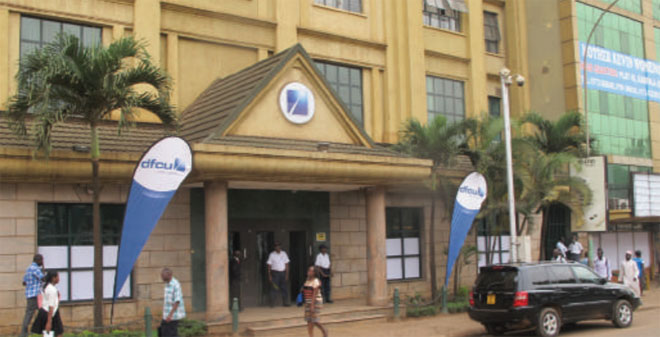Business tycoon Sudhir Ruparelia demands Dfcu Bank, the financial institution that took over management of Crane Bank in January 2017 to pay $8,660,462 (Sh32 billion) for rent arrears.
Sudhir through his company Meera Investment Limited says the amount is in breach of the tenancy agreements in respect to plots 38 and 40A Kampala Road. Plot 38 Kampala was the headquarters of Crane Bank.
Dfcu expressly inherited all tenancy agreements and, therefore, “assumed the rights and obligations under the tenancies in respect of the suit properties.”
The case stems from a December 16, 2014, in the commercial Court presided over by Justice Stephen Mubiru, where Sudhir expressed that by the time of execution the tenancy agreement was a separate legal entity from the Crane Bank Limited.
“Under clause 3(c) of the tenancy agreement, it was specifically agreed by the parties (Crane bank and Meera) that the tenancies shall remain firm and binding on them until the expiry of ten years,” reads part of the plaint filed by Meera.
In the above tenancy agreement, Crane bank would pay $46,980 (Shs171m) in rent and $46,980 (Shs 171m) in ground rent per month with a seven per cent annual increment for Plot 38 Kampala road and $9,890 (Shs36m) in rent and $9,890 (Shs36m) in ground rent for Plot 40A Kampala road.
At the time of the takeover, dfcu inherited the entire premises previously rented by Crane bank and rebranded the entire premises. Dfcu also undertook to pay to Crane Management Services (managers of Meera) $531,000 (Shs 1.93bn) in restoration costs and arrears in utility bills.
According to the Meera plaint, Dfcu, in February 2017, entered into a revised contract in “respect of the basement and ground floors of Plot 38 Kampala road for a fixed period of three years.”
Dfcu, however, reportedly continued to occupy 1st, 2nd 3rd and 7th floors of Plot 38 Kampala road and Plot 40A Kampala road “under the terms and conditions of the tenancy agreement dated December 16, 2014” until April 30, 2017, when it opted to vacate them.
According to Meera, this constituted a breach of clause 3(c) of the surviving tenancy agreement, that covenanted that the “tenancies shall remain firm and binding on them until the expiry of ten years” and for this breach, dfcu is “liable to pay the plaintiff the sum constituting rent for the unexpired period of 84 months being $8,660,462.34 (Shs 31.6bn).”
Meera, read Sudhir, now wants this money plus interest “at the prevailing commercial rate from the date the defendant was in default until payment in full.”
Sudhir added that the tenancy agreement which is scheduled to expire on March31, 2024 has no clause of termination in the contract.
“The agreement was a fixed tenancy for 10 years which binds the successor, Dfcu, which continued occupying the premises. The rentals were on an excluded liability,” Sudhir said.
Sudhir added that the rent is in respect of the four floors occupied by Dfcu.
“No reasonable tenant as a bank would behave in that manner. Dfcu Bank was in breach of the agreement,” Sudhir expressed.
Meera contends that non-payment of the rent has not only caused it losses, but also deprived it of use of its money and interest, caused it more suffering and grave inconveniences and adversely affected its damages which it claims general damages.



